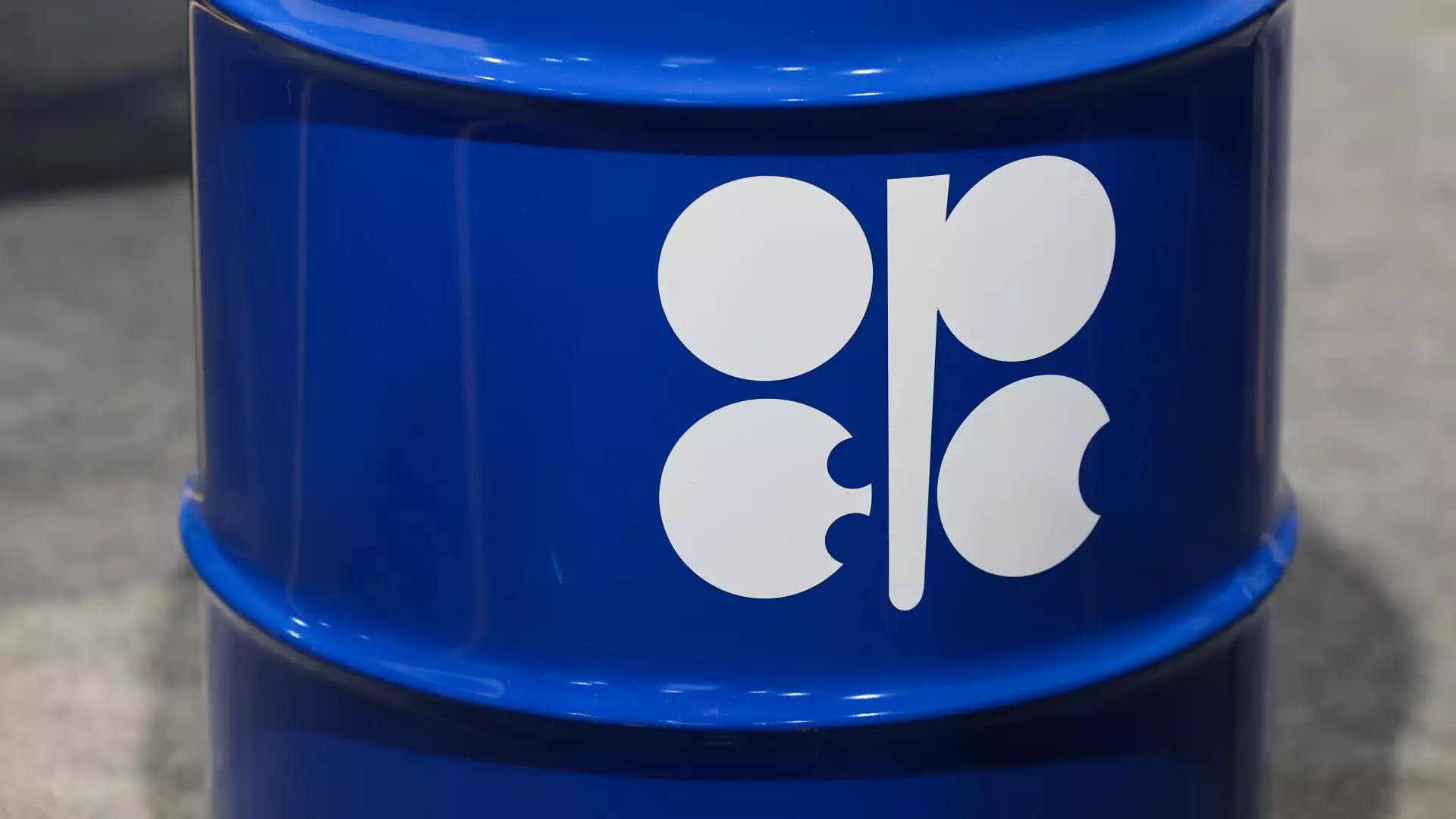In the ever-turbulent world of oil production, the Organization of the Petroleum Exporting Countries (OPEC) and its allies, collectively known as OPEC+, sent shockwaves across the market with their decision to increase oil output by 411,000 barrels per day for July. On the surface, this bold maneuver seems like a calculated effort to reclaim lost market share. However, it raises critical questions about market stability and long-term sustainability in an industry already teetering on the brink of disruption. The strategy embodies a duality—a seemingly necessary adaptation to market pressures while simultaneously risking exacerbating an already volatile situation.
Having spent years restricting production by more than 5 million barrels per day—amounting to a staggering 5% of global demand—OPEC+ appears to believe it’s time to reclaim what is rightfully theirs. Yet, one cannot ignore the irony in their long-standing efforts to limit supply only to upset the delicate balance they so carefully curated. By tripling their output increases across the months of May, June, and now July, they open themselves to the criticism that short-term gains could jeopardize the industry’s future.
Market Reactions: A House of Cards?
The immediate market response to OPEC+’s decision was lukewarm at best, with U.S. crude futures falling as anxiety spread regarding further increases in output. Brent crude prices sank marginally, indicating a market that remains unconvinced about the wisdom of OPEC+’s bold choices. While OPEC+ leaders, particularly from powerhouse nations like Saudi Arabia and Russia, are ardently pursuing market share, they may inadvertently be pushing other producers—especially U.S. shale producers—into a corner. The move plays like a high-stakes game of poker where the risk of an overflowing supply threatens to destabilize the entire table.
Analysts are resoundingly skeptical. Harry Tchilinguirian from Onyx Capital Group voiced the sentiment that OPEC+’s continued focus on volume over price may reflect desperation rather than strategic foresight. The group’s reliance on the idea that increasing supply will drive profits simply disregards the complex dynamics of global oil markets, where many players are grappling with thinning margins and increasing competition.
Measuring the Impact: Bully or Savior?
As OPEC+ pumps approximately half of the world’s oil supply, one cannot overlook the implications for global economics and geopolitics. When OPEC+ talks about securing a “steady global economic outlook,” one must question whether such an outlook is genuinely attainable when the foundation of the oil market feels increasingly shaky. Economically, the group may see short-term revenue benefits, but the long-term impacts could range from creating new dependencies to stirring geopolitical tensions.
An allusion to Jorge Leon’s comments demonstrates the escalating severity of the situation: three consecutive increases in supply—each more aggressive than the last—are not mere adjustments; they are signals of a far deeper crisis brewing beneath the surface. Are they simply attempting to recalibrate relationships with nations like Iraq and Kazakhstan, or are they setting potentially dangerous precedents that could backfire in due time?
Moreover, the contrasting viewpoints within OPEC+ itself—such as Algeria’s request for a pause on output hikes—underscore the rift within the alliance. The very idea that some countries see the current strategy as a gamble reveals the cracks in OPEC+’s unified front. In this context, the potential for a fractured coalition only fuels uncertainty, causing industry watchers to question the long-term sustainability of the group’s ambitions.
Environmental Considerations: The Elephant in the Room
It’s imperative to acknowledge that these production decisions do not exist in a vacuum devoid of environmental implications. As global leaders increasingly recognize the need for a transition to sustainable energy, the oil industry’s fraught path raises troubling questions around ecological damage and climate change. OPEC+ is in a precarious position; they are vying to kickstart production in a world that is gradually declining reliance on fossil fuels. The tension between immediate economic interests and long-term environmental sustainability could manifest in devastating ways for both the industry and the planet.
OPEC+ stands at a crossroads, grappling with options that could redefine the oil landscape for the foreseeable future. Yet, their current strategy feels like a wager that could yield short-term profits but at an immense cost—risking not only market equilibrium but potentially hastening the very transition they both depend on and resist. This precarious balancing act, where the alignment of interests remains questioned, could ultimately endanger the stability they are trying to restore.



Leave a Reply